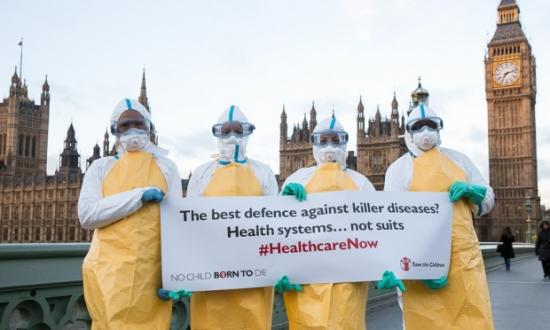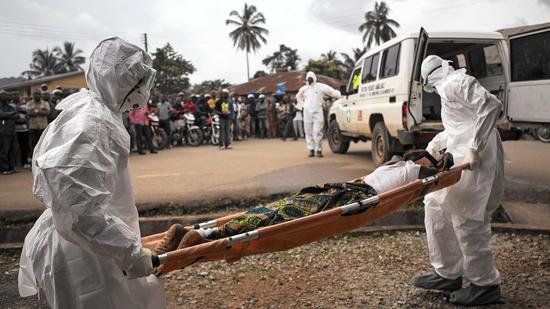You are here
Mon, 2009-03-09 11:54 — mdmcdonald
The mission of the Global Health Working Group is to explore and improve current and emerging states of health and human security worldwide.
General Topic Tags:
Problem, Solution, SitRep, or ?:
Group:
Group description:
This Working Group is focused on exploring current and emerging states of health and human security worldwide.
Group visibility:
Public - accessible to all site users
Add Content to this group
Members
| Aboubacar Conte | admin | Albert Gomez | Allan | Anthony | Carrielaj |
| Chisina Kapungu | ChrisAllen | Corey Watts | CPetry | DeannaPolk | Elhadj Drame |
| Gavin Macgregor... | Hadiatou Balde | hank_test | jranck | JSole | Kathy Gilbeaux |
| Lisa Stelly Thomas | loguest | Maeryn Obley | mdmcdonald | MDMcDonald_me_com | Mika Shimizu |
| mike kraft | njchapman | Norea | Tiaji Salaam-Blyther | tnovotny |





 Health workers who have returned from west Africa and colleagues based in the UK walk to Westminster in support of Save the Children’s campaign to strengthen health systems globally. Photograph: Jeff Moore/Save the Children
Health workers who have returned from west Africa and colleagues based in the UK walk to Westminster in support of Save the Children’s campaign to strengthen health systems globally. Photograph: Jeff Moore/Save the Children 


 A resident of Tamba Kula, a small fishing community in the Aberdeen district of Freetown, bathing at the shoreline as boats sit idle. Bryan Denton for The New York Times
A resident of Tamba Kula, a small fishing community in the Aberdeen district of Freetown, bathing at the shoreline as boats sit idle. Bryan Denton for The New York Times
Recent Comments